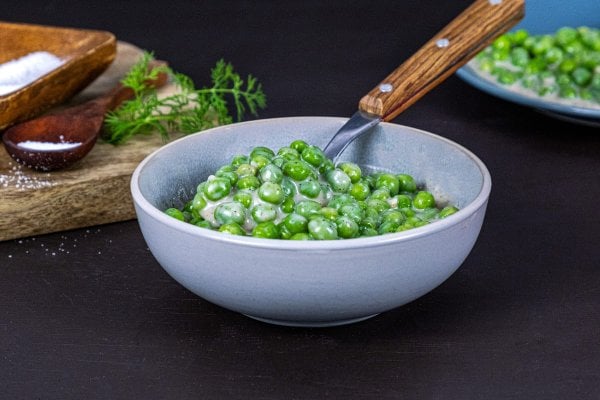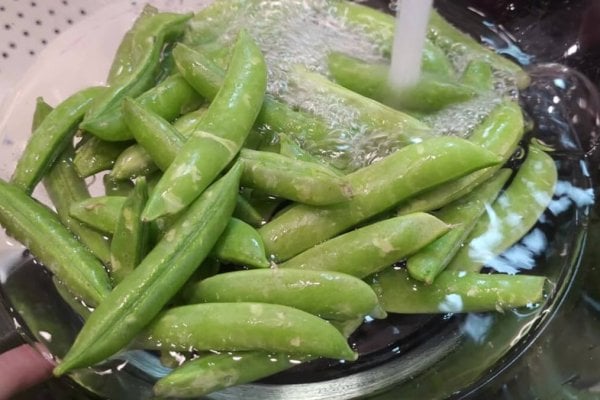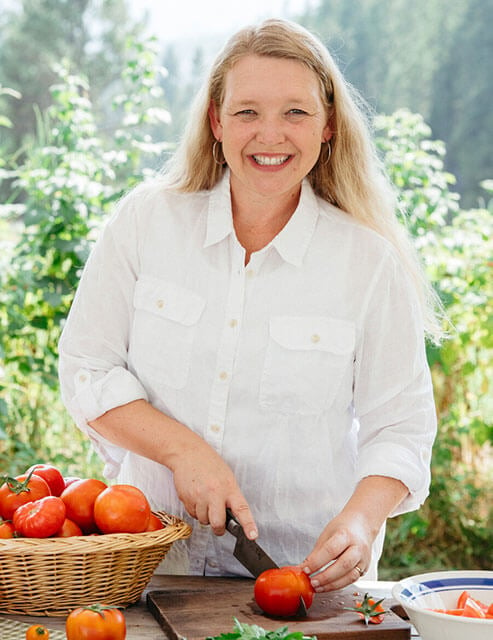Preparing for inflation is not a decision to make out of fear, and we often find that the homesteading lifestyle can naturally accomplish this preparation.

Food preservation is a common homesteading task, and learning how to dehydrate food is a valuable method to make sure you have a well-stocked pantry.
However, knowing what foods you should not dehydrate saves precious time, energy and money to preserve healthy foods for long-term storage. Read on to learn foods unsuitable for dehydration and alternate preservation methods you can use.
Dehydration for Food Preservation
We use many methods to store a year’s worth of food, and it’s easy to get started by choosing one technique to master before moving on to the next. If you are unsure where to start, check out these posts to give you an overview of popular food preservation methods.
Dehydration is often a preferred choice for beginners because it requires minimal equipment and is easy to learn.
We have used our dehydrator to make DIY greens powder to boost our immune system naturally by using the greens we grow year-round.
Drying fresh herbs we grow in our cottage garden helps save money at the grocery store, especially when making other seasonings, like homemade garlic salt and DIY celery salt.
Tending to our orchards and learning how to prune fruit trees significantly impact our fruit harvest. Our kids’ favorite way to use the dehydrator is by making my secret ingredient fruit leather recipe that stays soft and chewy.
All food preservation methods have strengths and weaknesses, and dehydrating food is no exception. It’s important to know foods you should not dehydrate to properly preserve the food you worked so hard to grow.
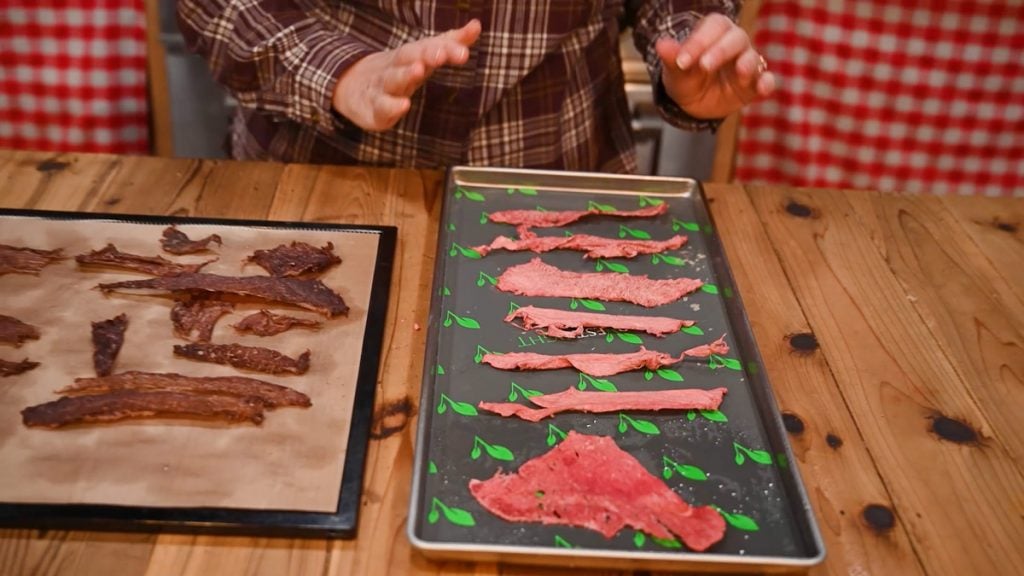
Dehydrating vs. Freeze Drying
Dehydration and freeze drying are two great preservation methods that are entirely different. Freeze Dried vs. Dehydration gives a deep dive into each process, with five foods I preserved to compare the differences.
Here is a brief summary to give you an idea of their unique benefits.

Dehydrating Food
The dehydration process removes 70-90% of moisture with warm circulating air flowing around the food. An electric dehydrator, the sun and a conventional oven are the most common ways to dehydrate foods.
Dehydration takes 2-12 hours, depending on the food, and becomes lighter, nutritionally dense and easily stored. Foods can often have a more intense flavor with a chewy or crunchy texture.
Homesteading Hack: Spraying lemon juice on vegetables and fruits helps keep them from turning a brown color, and the flavor of the food is not compromised.

Freeze Dried Food
Freeze drying requires a freeze dryer to safely and effectively remove moisture using frigid temperatures. The sublimation process removes 99% of moisture by freezing the food, turning the ice crystals into a vapor that escapes from the food through a high-pressure vacuum.
Freeze dried foods are nutritionally dense, light and airy, and easily stored with a shelf-life of up to twenty-five years. Depending on the food, it takes 24-36 hours, and there are only a few foods that cannot be freeze dried effectively.
What Are the Disadvantages of Dehydrating Food
There are a few disadvantages to consider when dehydrating certain foods.
- Safety – If food is not thoroughly dehydrated, bacteria can form. This bacteria is not like the good bacteria that is intentionally cultured when fermenting for long-term food storage. The bacteria that forms with improperly home-dehydrated food is the type that will cause food poisoning, making you sick.
- Quality – Some foods won’t hold their texture or flavor and don’t rehydrate well.
- Time Investment – The time involved in preparing some foods for dehydration can also be a disadvantage. Certain foods dehydrate quickly, like herbs and greens, and others, such as meats, can take longer.
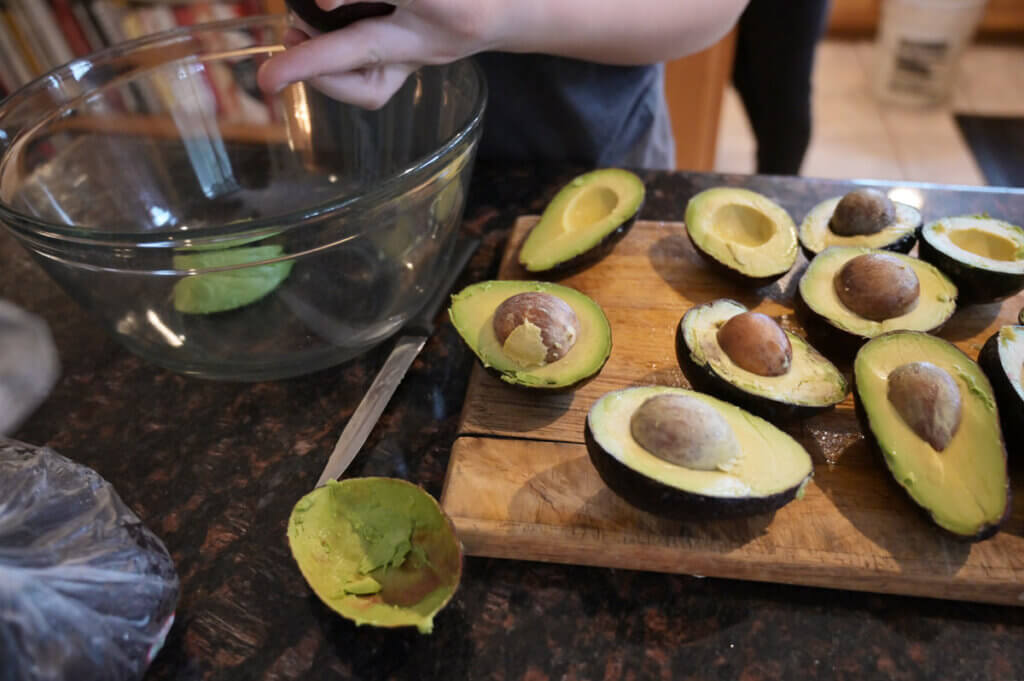
Foods You Should Not Dehydrate
Not all foods dehydrate safely or effectively. Here is a list of foods you should not dehydrate, explaining why and alternate preservation method suggestions.
Avocados
Although most fruits and vegetables dehydrate well, avocados do not. Due to their high-fat content, avocados will quickly turn rancid after dehydration. Instead, try freeze drying avocados for long-term preservation.

Dairy Products
The high-fat content in butter, whole milk, cream, and cheese, doesn’t allow for the proper amount of moisture to be removed, causing them to spoil quickly.
When you buy powdered milk at the store, it is commercially dehydrated with special equipment. Attempting to dehydrate milk at home can be unsafe because it is held at too high a temperature for too long, allowing spoilage and causing bacteria to proliferate.
Instead, try freezing or freeze drying milk for long-term preservation.
Butter and cream alternately freeze well, and this dream cheese recipe makes cheese that lasts up to a year at room temperature!
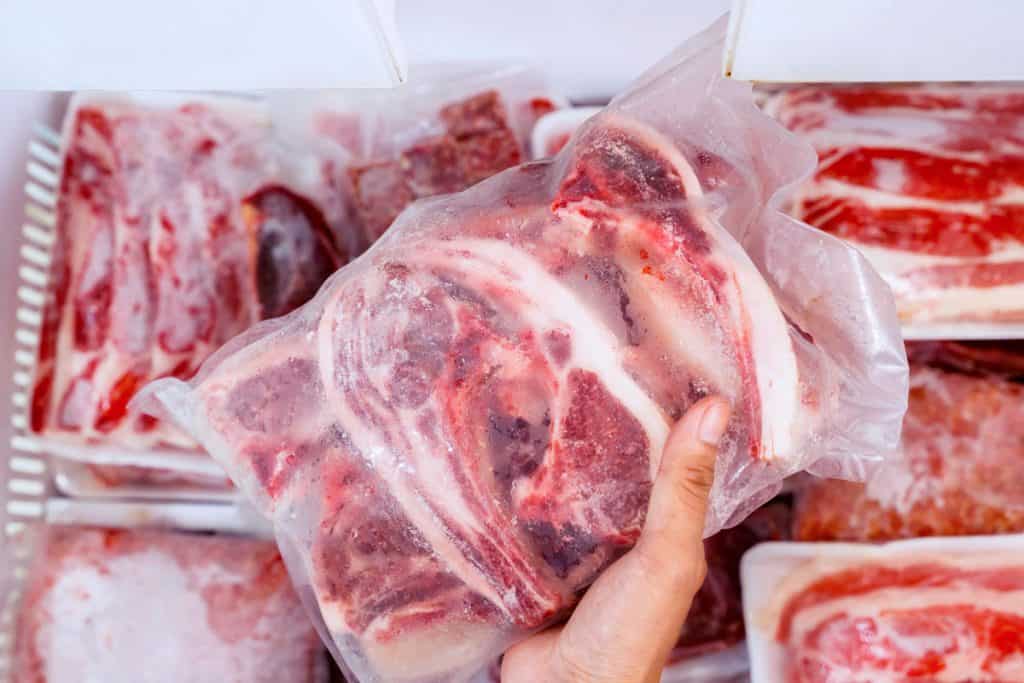
Fatty Meats
High-marbled fattier meats take a long time to dehydrate, and if not done correctly, dehydrated meat can become rancid, making you sick. I choose lean meats when making jerky, trim off all the fat, and thinly slice.
While some foods should not be frozen, meat is a perfect candidate for freezing or canning. Canning meat is a better option when preserving all other types of meat.
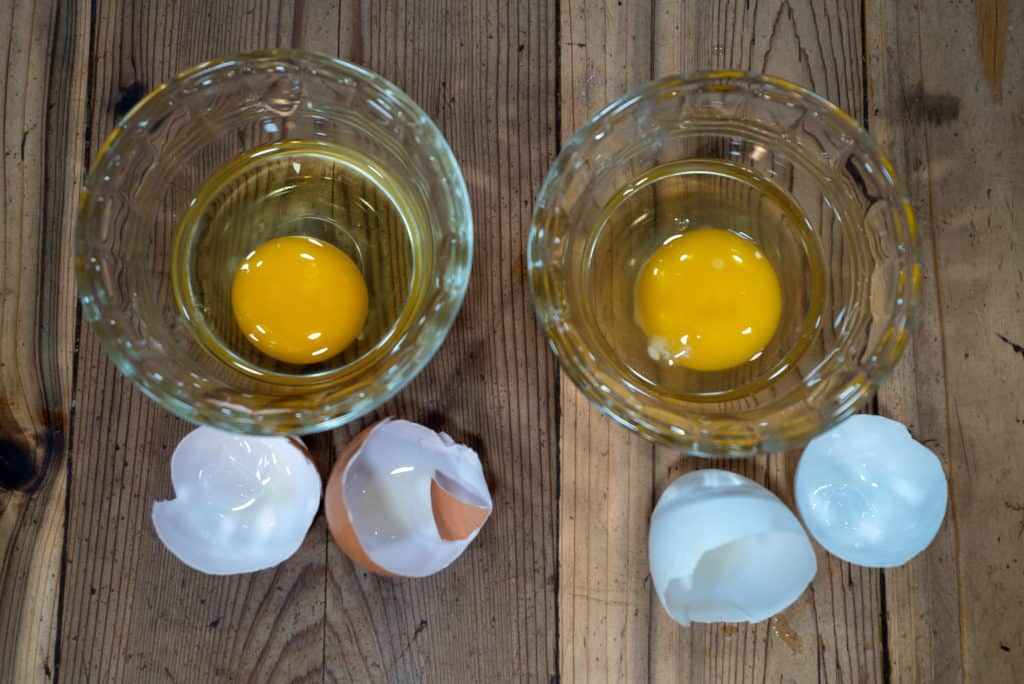
Raw Eggs
With all the different ways to preserve eggs, I highly discourage dehydrating raw or cooked eggs. Raw eggs spoil quickly, and it is not worth getting sick. Cooking eggs before dehydrating them results in rehydrated eggs with poor flavor and texture.
Instead, try freeze drying eggs or water-glassing eggs to yield better results for long-term preservation.
Nuts
Nuts are high in fat, causing them to go rancid very quickly, making them a poor choice for dehydration. Storing nuts in vacuumed sealed containers will give them a longer shelf life.
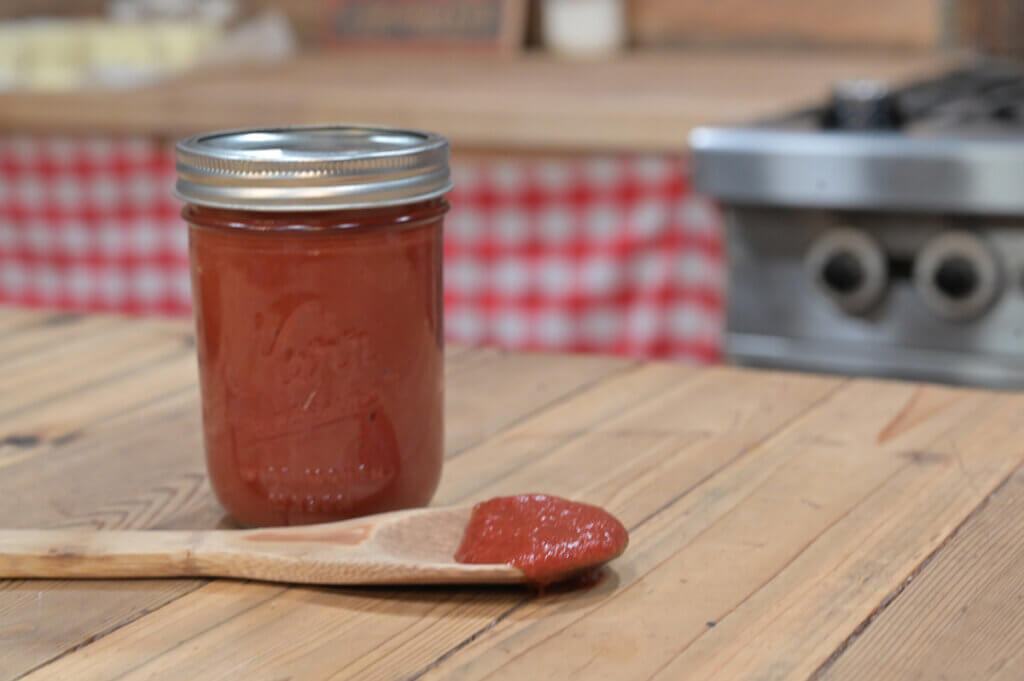
Store-Bought Condiments
A benefit of dehydrating food is preserving them without artificial preservatives and chemicals. Processed foods are often sugar-laden and filled with preservatives, which will defeat the benefit of dehydrating food at home.
Try this homemade fermented ketchup and this lacto-fermented mayonnaise for better-tasting, quick, easy, and healthier options.
Juice
Dehydrating juices is time-consuming and messy. Freezing juices works great and is faster and easier in most cases.

Excalibur Dehydrator
Dehydrated foods are lightweight, easy to store and highly nutritional. It is our go-to for quick and easy snacks when working on our homestead or enjoying the great outdoors on hiking adventures, camping and hunting trips.
I recommend the Excalibur Dehydrator. Over the years, this workhorse has provided abundant dehydrated food, keeping our pantry shelves full of healthy on-the-go food options.

Other Articles You May Enjoy
- Food Preservation A Year at a Glance
- Preservation 101 Introduction to Canning
- Preservation 101 Introduction to Fermentation
- Harvest Right Freeze Dryer (1 Year Review)
- Preservation 101 Dehydrating Foods
- How to Dry Fresh Herbs
- Easy Fruit Leather Recipe (Soft and Chewy + A Secret Ingredient)
- Water Glassing Eggs For Long-Term Storage
- Excalibur Dehydrator
- Step by Step Tutorial for Canning Meat (Raw Pack Method)












